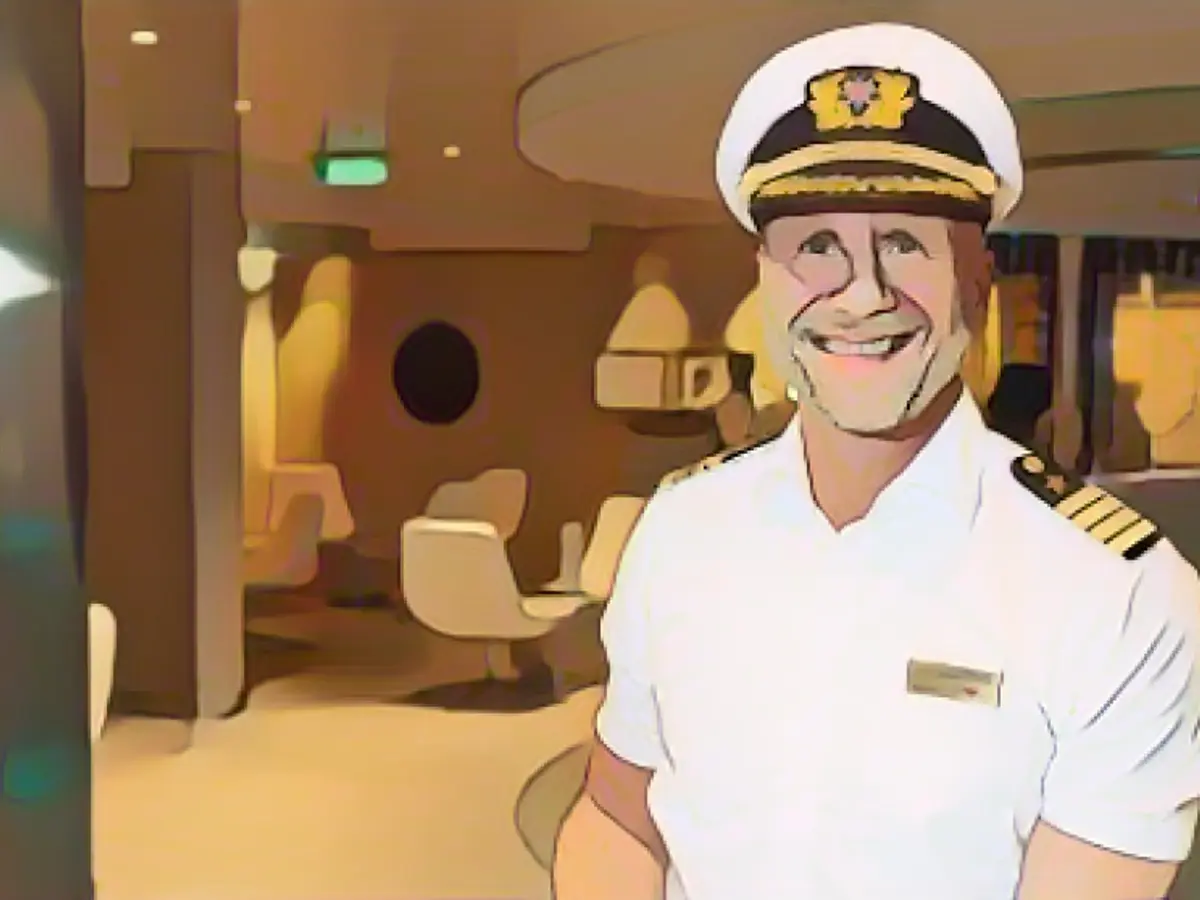Setting Sail with Misconceptions: Debunking Myths About Cruise Captains
You've likely seen images of stern, impeccably-dressed individuals standing at the helm of a gleaming cruise ship. The captain. They're often depicted as unapproachable, responsible figures who never drink, perform weddings, or permit passengers to run amok. But what's the truth behind these stereotypes?

Myth 1: Captain is a teetotaler
Wrongo dingo! Contrary to popular belief, captains are not perpetually on duty and can unwind with the occasional libation. They, too, have their personal time. Janauscheck, for instance, occasionally indulges in a glass of wine. He explains, "I am responsible around the clock, but I can delegate tasks to my team. I sometimes enjoy a glass of wine, just as long as I can handle my business."
Myth 2: Captain is always dressed for action
Under normal circumstances, captains don't have to patroll the decks at night. Once aboard, they are aided by officers on duty, also known as staff captains. Regarding his own experiences, Captain Janauscheck confessed, "I've stood on the bridge in my pajamas!" It was a case of the extended bow floodlights on the Elbe creating vibrations that woke him from his slumber. He quickly sprang into action, dressed in his nightwear, but luckily, the situation did not escalate.
Myth 3: Captain is a confirmed single person
Clearing the deck of singletons, the television portrayal of captains may lead you to believe that they are besotted bachelors. This is not always the case. Janauscheck, the married father of three, confirms that the AIDAnova's guests maintain a similar misconception, but he assures us of his coupled existence.
Myth 4: Captain officiates weddings
While it's true that captains possess notarial powers, they can only perform marriages in the case of a dying passenger's last will and testament. This extraordinary circumstance, however, has never occurred in Captain Janauscheck's career.
Myth 5: Captain throws passengers in the ship's prison
There is a detention cell on AIDA ships, but the security officer is responsible for populating it. In rare instances when a passenger is violent or inebriated, the captain may merely approve their confinement.
Myth 6: High waves pose the greatest threat
Surprisingly, mega ships are not at danger from high waves. Captain Janauscheck recalls an event that left him and his passengers jittery, but it wasn't the high waves that caused panic. Instead, the pool's spillage, incited by the waves, became the cause of online sensation, initially causing apprehension onboard.
Myth 7: Captain does not steer the ship anymore
Contrary to popular belief, the captain's role in navigating the ship remains unchanged. Modern technology has not entirely replaced traditional methods. Joysticks, autopilots, and the old-school steering wheel are still employed in steering the ship.

Myth 8: Pilot steers the ship
A piloting misconception! Pilots serve a consultative role, never directly manipulating the steering wheel or joysticks. They advise the captain during navigation.
Myth 9: Passengers hate the swaying of the ship
Stabilizers on the ship limit the roll, or swaying motion, thus mitigating movement discomfort for passengers. Yet, some individuals dislike the more frequent, less uniform motions that create a jerking sensation.
Captains bear the weight of various misconceptions and are often misunderstood for their roles. A captain's responsibilities involve primarily managing the ship safely, ensuring the passengers' well-being, and, most importantly, guaranteeing a delightful and memorable experience onboard.
Source:
Insight Enrichment
Cruise Ship Captains and Training
Cruise ship captains are highly trained, experienced mariners who must adhere to stringent maritime regulations. They undergo rigorous training to ensure they can handle a wide range of situations, including emergencies and unforeseen circumstances. This comprehensive training helps delegating tasks, planning courses, and ensuring the safety and comfort of their passengers.
Regarding the operational requirements, captains' roles are more dynamic than conventionally perceived. They oversee everything from cooking to entertainment, ensuring that every aspect of the cruise runs smoothly. A captain's insight into the intricacies of the ship and its passengers, combined with their delegation skills, effectively shapes a memorable vacation.







